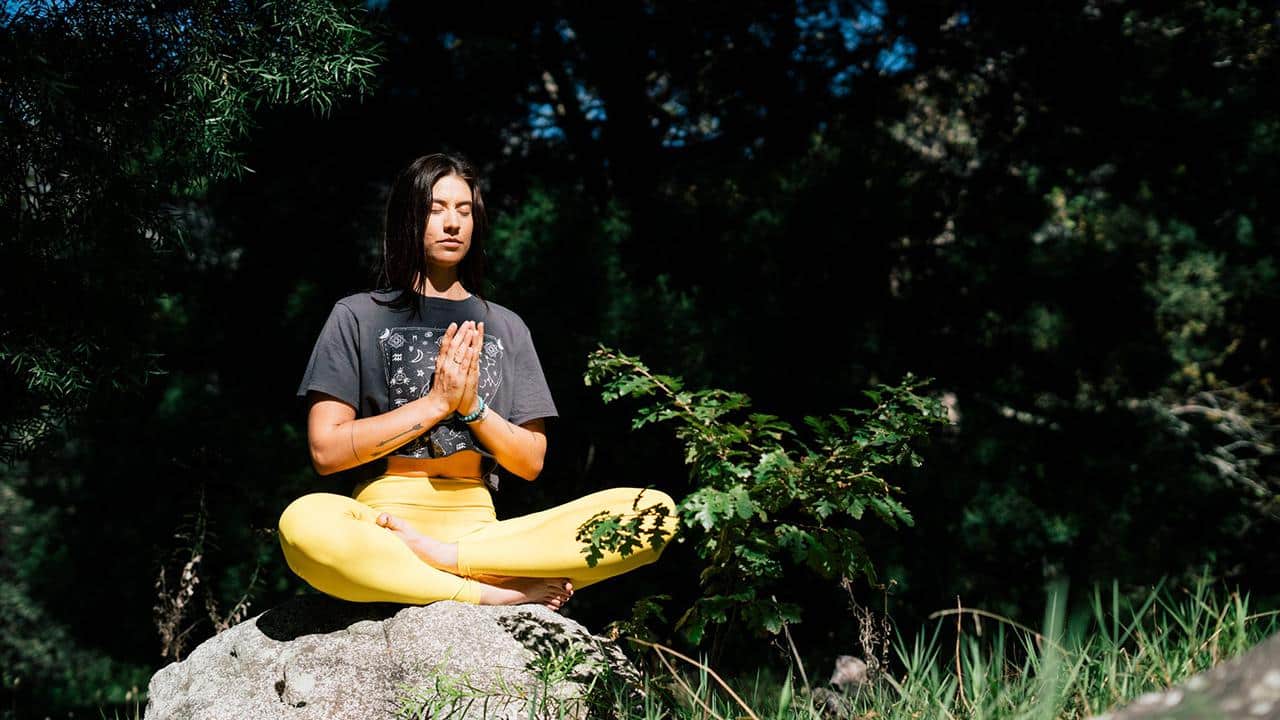

rf._.studio / Pexels
By Anne-Sophie Brändlin
If, this time last year, the world had been told it would spend much of the coming months in lockdown, few might have believed it. But that reality came, and it did so almost overnight, bringing with it a crashing end to the busy flow of life, which sees billions rushing from one appointment to the next without much time to think. Left to their own devices at home, people have had to find new ways to spend their time, and deal with anxiety and silence.
While some have taken to endurance sports in tiny spaces or been drawn to walk in nature or just breathe in fresh air, others have turned to practices like meditation, yoga, Tai Chi and shiatsu to calm their minds and decrease stress levels.
Seasoned practitioners believe these ancient mind and bodywork traditions offer an opportunity to better deal with crises such as the coronavirus pandemic. This doesn’t only have a positive impact on our health and immune systems, but potentially on society and even the environment.
“These practices help to bring us into the present moment and help to connect us to the reality of the situation,” said Jenny White, a British shiatsu practitioner who has been meditating for over two decades.
Creating an Awareness, One Breath at a Time
Though White says that doesn’t mean living in constant state of bliss and harmony. Rather, it allows people to acknowledge why they might be feeling scared, overwhelmed, stressed or lonely. It can also prevent them from running away from those emotions and looking for distraction in alcohol, Netflix, food or spending sprees.
In short, White explains, traditions such as yoga and meditation help create an awareness of what is happening in our world and allow us to tackle difficult situations and our reactions to them.
“Our body response to big crisis situations, like climate change, and now the pandemic, is often to freeze, be numb and to run away,” she said.
“The more we can connect with our body responses, the more we can tune into our own personal and collective responsibility to a crisis, whether it’s the pandemic or climate change, without going into that trauma response.”
Overcoming Crises
The coronavirus pandemic and climate change are two of the biggest issues facing humanity at this point in history. Whether it’s the global quest for a COVID-19 vaccine or the world pulling together to slash greenhouse gas emissions, solutions to both require an effort from the international community.
This is where the ancient Indian concept of Vasudhaiva Kutumbakam comes in. Rooted in yoga, it means the world is one family and has to act as such. And in times of crisis, collaboration becomes more essential than ever.
“Yogis believe that all life is connected, that we are all one and should live in harmony with each other,” said Alexander Bütow, who runs a yoga and meditation studio in Berlin.
“The problem is that many humans take themselves out of that and create divisions, groups, and start disconnecting — from themselves, from others, from the world around them. Once we stop this disconnect, we can overcome crises together.”
‘We Are Part of Nature’
He, like others who practice regularly, sees meditation and yoga as a means to slowing down, emptying our minds and calming our thoughts. And that, so the thinking goes, facilitates a connection not only to ourselves, but to the world around us.
“Every human being is intrinsically connected to every other human being and also to nature, animals, plants, everything on this planet. But you are often not aware of it because you are too busy with too many things. When that stops for a moment, when you calm down, you realize these connections,” said A.G. Ramakrishnan, a professor for electrical engineering at the Indian Institute of Science, who also researches in the fields of meditation and breathing exercises.
“The concept of yoga, for instance, is holistic. It teaches you that we can’t live without others, we cannot live without animals, we cannot live without nature.” Ramakrishnan continued.
Yet that, says Bütow, is not in keeping with the way we live.
“It has become a bad habit these days that we take ourselves out of nature. We are part of nature way more than we pretend to be. Nature is where we came from. But we have totally detached ourselves from that.”
He says breathing exercises can help us reconnect, because through our breath we are in constant contact with the outside world.
“We just have to remember this connection, which will help us to see ourselves as part of nature.”
Slowing Down to Help the Planet
For many, the pandemic has also brought our mortality into sharp relief. It has served as a reminder that life as we know it is susceptible to massive disruption.
In restricting what we can do, where we can go and how we can keep ourselves occupied, it has also made our worlds smaller, forced us not only to slow down, but in many cases to take a genuine pause. And that, says Jenny White, can reap rewards.
“Once you give yourself that time to pause and breathe, you will become kinder and softer and more understanding when it comes to your own shortcomings and difficulties. And this will make you more compassionate and understanding when it comes to other people and their needs and ultimately also our planet’s needs.”
Reposted with permission from Deutsche Welle.
- 4 Yoga Inversions That Will Improve Your Health - EcoWatch
- 5 Best Eco-Friendly Yoga Mats - EcoWatch
- 8 Ways to Invite Nature Into Your Daily Life - EcoWatch

 233k
233k  41k
41k  Subscribe
Subscribe 